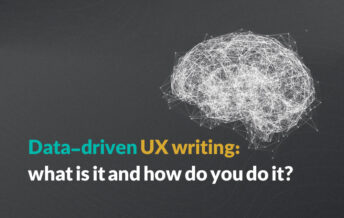Information suffocation: relax! not all education articles are for you

You’ll find a bunch of articles about UX, design thinking, UX research, and more every day. Also, you can find content written, copied, or translated on dozens of popular Medium publications, hundreds of websites, and Instagram pages. How much capacity does this well have? Do we get to say something new every day about UX writing or UX design? More than physics, anthropology, cosmology, or medicine? How much information do we need? Are the things we keep in our minds useful? Do we learn or are we just suffocating with information? What is Information suffocation?
The new way to get info
When the Internet came along, information circulation changed. It has three main features:
- Fast publishing and sharing
- Worldwide accessibility
- Multimedia
Fast publishing and sharing
A digital information circulation system’s key feature is speed. If in the analog world, newspapers reported the news the next day, nowadays it’s just a few seconds between occurrence and publication.
Everything in this world has a downside, and acceleration is no exception. In Iran, our ancestors believed in “tasting a word before it was said.” Back then, communication tools were limited. Technology is a tool, just like anything else. It’s like a pickaxe that creates blisters on your hand, and the computer keyboard adapts your brain to its pattern. The minds and behaviors of digital generations follow digital tools, it’s no secret. Nowadays we can’t use an old-fashioned phone. It’s only been a short time, but our habits have changed.
About 15 years ago, my computer crashed, so I had to write newspaper articles on paper and use a pen since I was using a computer to write them. I subconsciously pressed Cntrl + S about every 5 minutes. Though the buttons weren’t there, my brain had adapted to their function and was looking for them.
As I said in the examples above, the speed of information also affects brain functions and habits. As a result, you’re less likely to be able to taste the words before they’re published. So:
- Users don’t think about the consequences before publishing.
- Due to their digital capabilities, other users who share content republish it much faster.
- Our minds verify information with less precision.
- We have fewer opportunities for conscious analysis and stance.
Imagine you’re sitting in a room of 100 people and suddenly 90 others get up and clap. You feel obligated to do this, even though you don’t know why. Your brain is less active and everything happens subconsciously.
On social media, we see this all the time: Twitter, Instagram, LinkedIn, etc., with their reward systems and information dissemination mechanisms, quickly digest us in a large community. All of us think we’re unique and our minds are independent of others, but our borrowed lives (decisions, ideas, beliefs, behaviors, payments, information dissemination, compliance with society, etc.) are really our thoughts.
We’re losing self-awareness with digital lifestyles.
Worldwide accessibility
There weren’t that many people in the media until 30 years ago. People like politicians, business people, movie stars, writers, journalists, radio hosts, TV hosts, university professors, and the like could use the media to some extent. Only a small group of people could write for the newspaper. Publishing the book and getting noticed as an author was tough. It wasn’t easy for singers to become famous by themselves. They needed to be verified.
Since the Internet and blogging, another section of society has become media owners. The concept of personal media has emerged. Nowadays, it’s easier to share whatever you want. It’s easier to make an account and share stuff. There’s no need to prove yourself, get approved, see a teacher, learn skills and pass an exam. Just a few clicks.
Through this new path, people can access more useful and useless information. Anyone can speak regardless of science and ethics. There are no restrictions. In this way, the sources of information are expanded. Until yesterday, we had to read the newspaper, but now we can get useful or useless information from any tweet.
In a word, these people are losers in the great computer revolution. The winners, which include among others computer companies, multi-national corporations and the nation state, will, of course, encourage the losers to be enthusiastic about computer technology. That is the way of winners, and so in the beginning they told the losers that with personal computers the average person can balance a checkbook more neatly, keep better track of recipes, and make more logical shopping lists. Then they told them that computers will make it possible to vote at home, shop at home, get all the entertainment they wish at home, and thus make community life unnecessary. And now, of course, the winners speak constantly of the Age of Information, always implying that the more information we have, the better we will be in solving significant problems — not only personal ones but large-scale social problems, as well. But how true is this? If there are children starving in the world — and there are — it is not because of insufficient information. We have known for a long time how to produce enough food to feed every child on the planet. How is it that we let so many of them starve? If there is violence on our streets, it is not because we have insufficient information. If women are abused, if divorce and pornography and mental illness are increasing, none of it has anything to do with insufficient information. I dare say it is because something else is missing, and I don’t think I have to tell this audience what it is. Who knows? This age of information may turn out to be a curse if we are blinded by it so that we cannot see truly where our problems lie. That is why it is always necessary for us to ask of those who speak enthusiastically of computer technology, why do you do this? What interests do you represent? To whom are you hoping to give power? From whom will you be withholding power?
Niel Postman
Multimedia
Text, audio, and video became more accessible. Today, a TV camera doesn’t have any divine authority. People have cameras on their phones and use social networks. Their eyes, ears, and minds are open to seeing, hearing, reading, and being speakers, cameramen, directors, and writers.
Information suffocation in the age of information explosion
This eventually led to an uncontrolled amount of cluttered information. It’s difficult to live like a monk today because we’re so close to information. We just need our phones.
What’s the situation in the world when it comes to skills, knowledge, and wisdom? Are we safe from information suffocation and information collapse? Maybe.
I’ve been asked to teach creative writing, copywriting, and UX writing for the last ten years. Sometimes I did. For example, in some high schools or colleges. Every time, I was like: I don’t have anything to say, I just want to tickle your mind. Nothing more.
Pay attention to Google’s ranking system: If you answer the user’s question, you’ll be at the top.
Well, I’d rather spend time brainstorming with you than bringing you a ready-made treat. Like now.
WHY?
Nauseating information
Like many of you, I’m always on the lookout for new things. I read the latest articles and watch movies. Several publications in Medium are my most useful resources. Every time I open them, I find new things. I read some in the tail, I bookmark some, I reject some.
When you can’t stop reading, watching, and hearing, you get nauseated, confused, and don’t know what to look for. As much as we open our minds to repetitive input, we forget to take advantage of its potential. In order not to fall behind the trends of the day, we get used to reading all the time, talking about things we don’t need.
Attend any conference on telecommunications or computer technology, and you will be attending a celebration of innovative machinery that generates, stores, and distributes more information, more conveniently, at greater speed than ever before, To the question “What problem does the information solve?” the answer is usually “How to generate, store and distribute more information, more conveniently, at greater speeds than ever before.” This is the elevation of information to a metaphysical status: information as both the means and end of human creativity. In Technopoly, we are driven to fill our lives with the quest to “access” information. For what purpose or with what limitations, it is not for us to ask; and we are not accustomed to asking, since the problem is unprecedented. The world has never before been confronted with information glut and has hardly had time to reflect on its consequences.
Neil Postman
When we need skills, we can get stuck: we read and learn more and more but our knowledge is shallow, and we never have the confidence or courage to put it to use. Whenever we eat the same thing in a row, we get nausea and pain. Information suffocates us too. When we fill our brains with information, we forget that “action” and “discovery” are also important.
Discover and try
Let’s be honest with ourselves: “Do I unconsciously clap like everyone else, or do I have the will and the consciousness to do that?”
Previously, the term was used in journalism as “news gatekeeper”. That meant deciding what’s good news and what’s not. What to keep and what to toss. Humans need this technique to avoid information suffocation.
Our next step is to tap into some of the brain’s inherent powers:
- Thinking
- Search and discover
- Data pruning and selection
By letting our minds analyze, we won’t be confused and misunderstood.
By valuing search and discovery, we’ll be safe from the bondage of information and the suffocation of information. We’ll make better decisions and act more consciously.
With pruning and selection, we learn to go for information and knowledge based on need, not what everyone says. We want mental answers, not to hold on to stuff we don’t need.
What say you?


